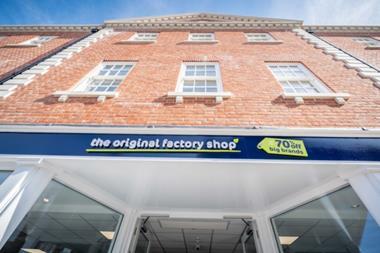With pressures ranging from international uncertainty to NI increases, Acopia takes a look at how retailers can achieve more with less in unprecedented times
UK retailers are facing an unprecedented number of challenges in 2025. National Insurance increases have now taken effect, adding significant pressure to already strained balance sheets.
This domestic challenge coincides with international uncertainty as US President Donald Trump’s proposed tariffs threaten to create unpredictable price hikes and further disrupt global supply chains.
Consumer caution offers little relief.
Footfall declined by 5% in March, while recent figures show rising unemployment and falling job vacancies. Consumer confidence has weakened considerably as households grapple with increased local council taxes and utility costs, further constraining spending.
Industry sentiment reflects this challenging landscape, with 70% of the UK’s 52 leading retailers expressing either a “pessimistic” or “very pessimistic” outlook for the next 12 months according to a BRC survey.
Many indicate that they face difficult choices: either pass increased National Insurance costs on to price-conscious consumers or reduce their headcount, neither option appealing in the current climate.
Strategic responses from major retailers
However, fashion leader Next exemplifies how forward-thinking retailers are responding to these pressures.
Facing a substantial £73m increase in National Insurance costs, the company has opted for a fundamentally different approach to simply raising prices or cutting jobs.
Instead, Next is implementing comprehensive operational efficiency improvements across their warehouses, distribution networks, and store operations.
This back-to-basics strategy is projected to deliver £23m in savings, offsetting nearly a third of their increased National Insurance burden without compromising customer experience or their workforce.
This strategic approach isn’t just for the big players. Smarter operations, better procurement and streamlined processes can unlock sustainable saving, helping any retailer to gain real traction during these turbulent times.
Operational excellence – not just for retail giants
By taking a page from Next’s playbook and focussing on operational efficiencies, supply chain optimisation and procurement excellence – retailers of all sizes can be in a better position to weather the current storm.
Having the right procurement strategy and the right tools in place can deliver real opportunities for savings. But beyond direct cost savings, there are even more benefits to be realised across other departmental functions, allowing retailers to do more with less.
The trick is knowing how to unlock these savings.
The right partner
Moving away from the multi-supplier model to single source supply for everyday consumables, for example, can provide savings on so many levels in unexpected ways.
A deeper and more focused supplier relationship helps to facilitate a much better understanding of your brand and your needs – enabling fast-tracked decision making, streamlined processes and faster outcomes.
Working in a single supply partnership can provide access to better pricing, leaner inventory management, simplified accounting and reduced transaction costs. It transforms procurement from a fragmented administrative task to a strategic function that supports wider business goals, meaning a retailer gets so much more from their budget.
When it comes to warehousing and distribution, working with one supplier who can support a Just In Time (JIT) delivery strategy means retailers can minimise inventory costs and eliminate storage costs. JIT also helps to overcome the challenges of over ordering and stock piling.
More time and money saved through more efficient processes.
The right tech
The right procurement platform can transform how shop teams purchase their everyday consumables, taking the process from a reactive necessity to a strategic advantage.
Having quick access to a centrally approved product list, including branded items such as tickets and till rolls, means stock is ordered and replenished in a fraction of the time, releasing shop staff to deliver more at front of house and a better customer experience.
Resource hungry procurement processes eat up time, this approach eliminates the needless purchasing procedures such as quote, invoice and petty cash paperwork – freeing up both store and head office staff.
And when the platform has budget setting functionality down to individual store basis, there is no more maverick spending or nasty invoice surprises. Combine this with management reporting and order alerts-then every penny being spent becomes visible.
Sustainable cost reduction
The retail environment will likely remain challenging throughout 2025 as economic pressures and consumer uncertainty persist.
However, retailers who focus on fundamental operational improvements rather than short-term cost-cutting will emerge better positioned for long-term success.




























